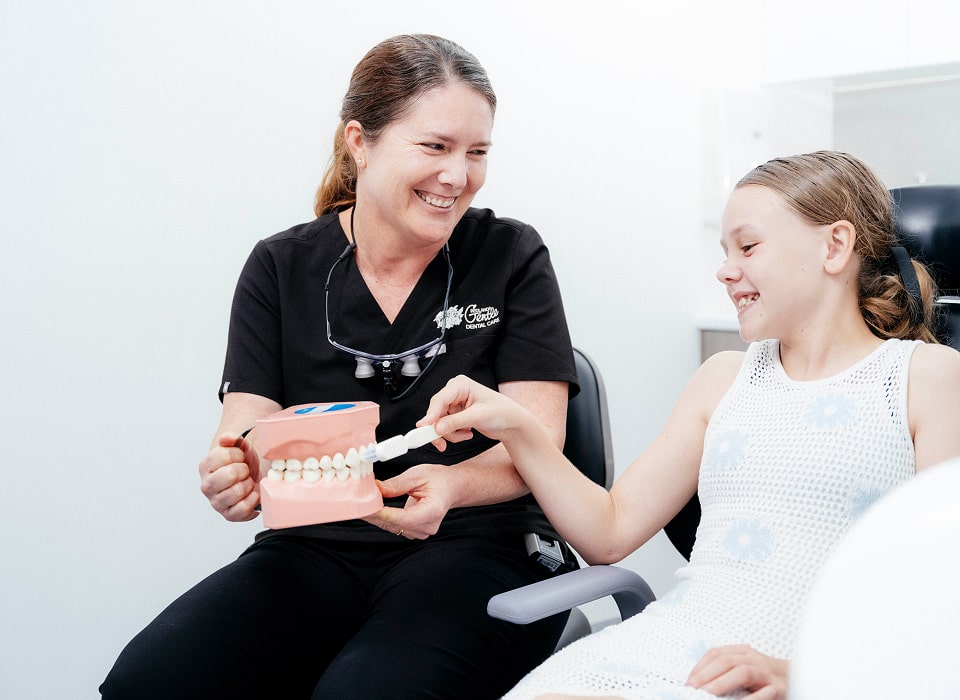Trusted Dentist Providing Gentle, Comprehensive Care Since 1983.
At Redlands Gentle Dental Care, you’re not just a patient; you’re family. With over four decades of experience in creating healthy, beautiful smiles, we understand the importance of gentle, personalised care.
Why Choose Us
Choose Redlands Gentle Dental Care for Trusted and Quality Dental Care Services
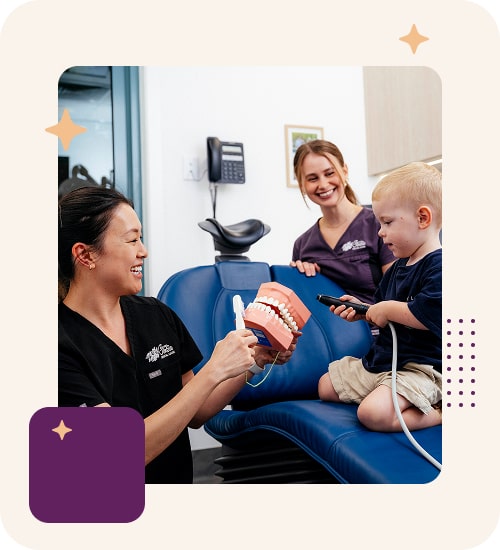
Experience Gentle, Personalised Dental Care
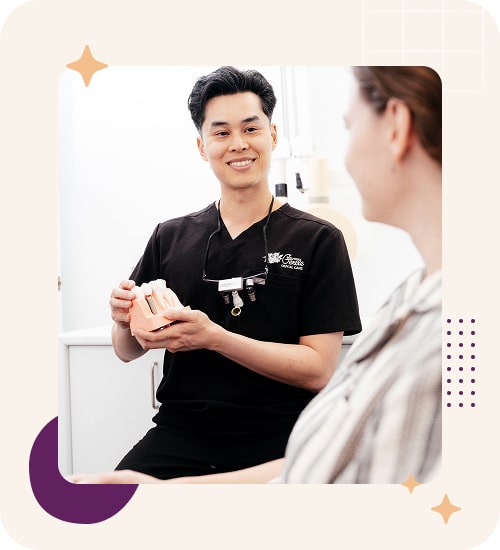
Meet Our Experienced and Empathetic Team
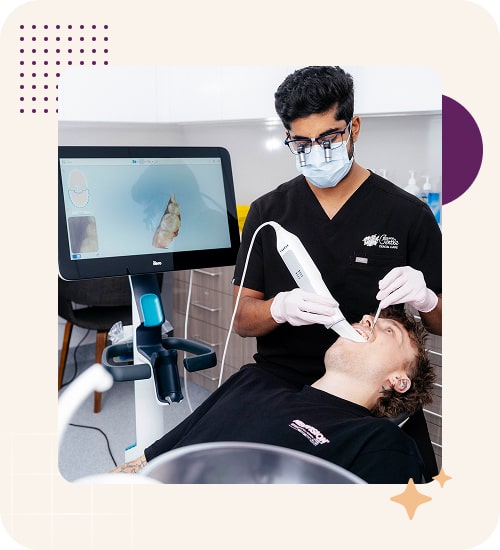
Enjoy Comprehensive Dental Services Under One Roof
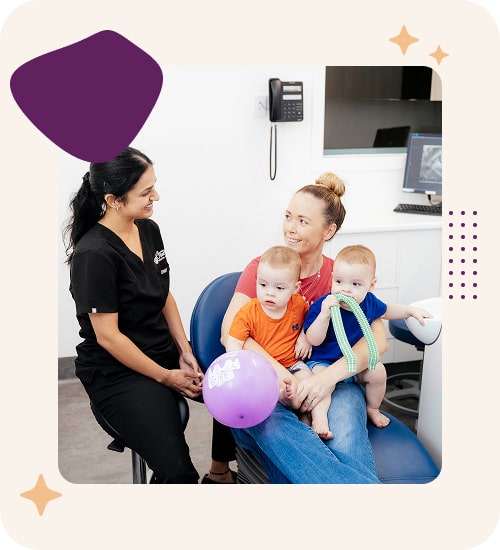
Feel at Home in Our Family-Friendly Atmosphere

Benefit from Affordable and Transparent Pricing
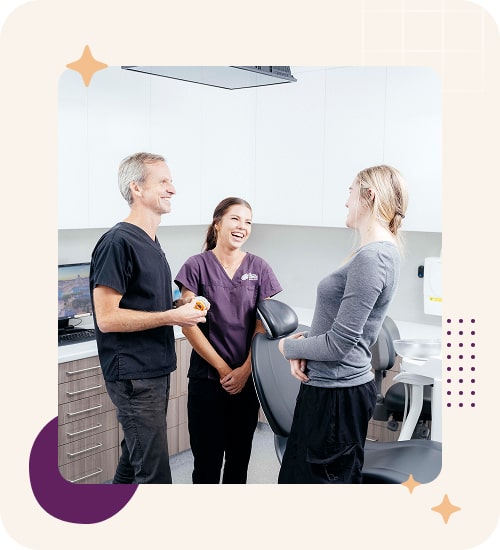
Trusted Community Pillar with 40 Years of History
Patient Reviews
Read Patient Testimonials About Their Experience with Our Gentle Dental Care
Megan M
Courtney
Megan Dickie
Sam Arthy
Janette P
Megan M
Courtney
Megan Dickie
Sam Arthy
Janette P
Stephen Travers
Jan Zielinski
Tom McEwan
Sonja Stevens
Moea Barber
Stephen Travers
Jan Zielinski
Tom McEwan
Sonja Stevens
Moea Barber
Two Convenient Locations
Quality Dental Services Made Accessible for Families in the Victoria Point and Capalaba Areas
- (07) 3245 5511
- 149 Old Cleveland Rd Capalaba, QLD, 4157
-
Opening HoursMonday 8:00 AM – 7:00 PMTuesday 8:00 AM – 6:00 PMWednesday 8:00 AM – 5:00 PMThursday 8:00 AM – 5:00 PMFriday 8:00 AM – 5:00 PMSaturday 8:00 AM – 2:00 PMSunday Closed
- (07) 3820 7777
- 2/1 Bunker Road, Victoria Point, QLD, 4165
-
Opening HoursMonday 8:00 AM – 5:30 PMTuesday 8:00 AM – 6:30 PMWednesday 8:00 AM – 5:00 PMThursday 8:00 AM – 6:00 PMFriday 8:00 AM – 5:00 PMSaturday 8:00 AM – 2:00 PMSunday Closed
Service Overview
Discover How Our Dental Services Support Your Oral Health Goals
Comprehensive General Dentistry for Your Oral Health Maintenance

Enhance Your Smiles with Advanced Cosmetic Dentistry Treatments

Restoring Function and Oral Health with Gentle Restorative Dentistry Services

Experience Comfortable Chewing with Long-Lasting Dental Implants

Immediate Care for Dental Emergencies to Protect Oral Health

Feel Relaxed During Your Dental Treatments with Our Sedation Option

Transforming Smiles and Confidence With Dental Veneers

Achieve Straighter Teeth and Better Oral Health with Invisalign

The Team
Get to Know The Passionate Dental Team Behind Your Healthy Smile



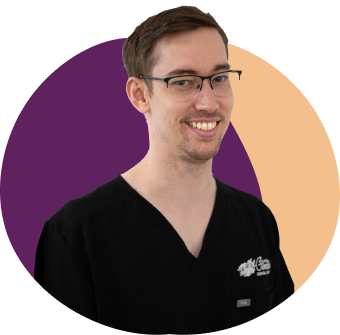

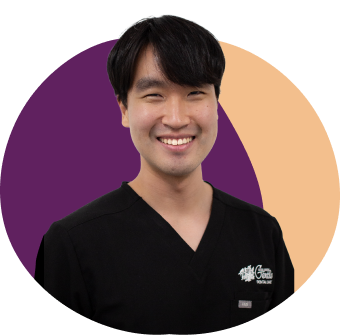
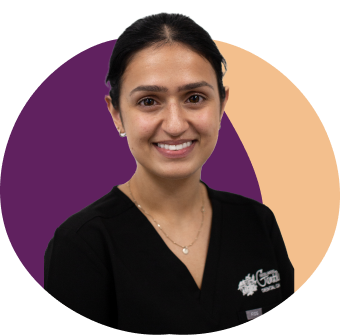
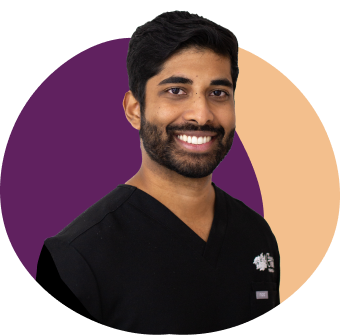
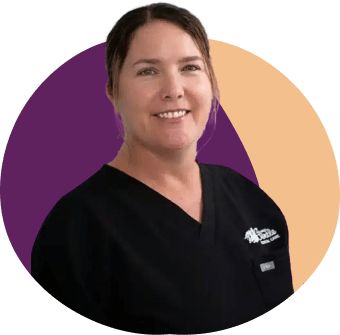

Our Payment Plans
Find What Works for Your Financial Needs With Our Dental Payment Plans
Child Dental Benefits Schedule
Invest in your child's smile with the Child Dental Benefits Schedule (CDBS). This government program offers eligible families financial support for essential dental services, promoting good oral health habits from an early age.
The CDBS covers up to $1,095 over two years for basic dental care like check-ups, cleanings, and fillings for children aged zero to 17. Eligibility depends on Medicare status and specific government payments, making quality dental care more accessible to families.
Learn MoreDental Services for DVA Card Holders
Veterans deserve high-quality dental care, and the Department of Veterans' Affairs (DVA) program delivers just that. The program offers dental benefits that vary based on card type.
Gold Card holders receive comprehensive cover for clinically necessary treatments, from routine check-ups to advanced procedures. White Card holders are covered for dental care related to accepted service-related conditions or mental health needs. Our clinic proudly supports veterans by providing high-quality dental care to maintain their overall health.
Learn MoreHumm
Simplify your dental care payments with Humm, a flexible financing option that lets you smile now and pay later. This interest-free payment plan allows you to spread the cost of your dental treatments over time, making essential care more accessible.
Humm is available for various dental services, from routine check-ups to more complex procedures. With instant approval and the ability to manage your account online, Humm helps you prioritise your oral health without financial stress.
Learn MoreZip
We offer Zip to help patients manage treatment costs. With credit limits between $1,000 and $50,000, eligible patients can select flexible repayment terms from three to 60 months, making it easier to manage costs.
Zip is ideal for anyone needing dental care without upfront costs. The user-friendly app allows you to track payments easily, so you can stay on budget while prioritising your oral health.
Learn MoreSuperCare
With the help of SuperCare, eligible patients can release their superannuation funds early to access essential dental procedures. This option is suitable for families lacking sufficient health funds or available resources, covering services such as orthodontics, implants, and root canal therapies.
SuperCare's consultants guide you through the straightforward application process, simplifying what can often be complex. This service enables you to prioritise your family's oral health without the burden of upfront costs.
Learn MoreAfterPay
Experience the convenience of dental care with Afterpay, allowing you to receive treatments now and pay later in four easy instalments over six weeks. This payment option is available to anyone over 18, a practical choice for adults looking to enhance and maintain oral health.
With no interest charges when payments are made on time, Afterpay promotes responsible budgeting. Payments are automatically deducted from your linked debit or credit card for a smooth experience.
Learn MoreBupa Preferred Provider
Enjoy exclusive benefits and hassle-free claims when you choose our clinic, a Bupa Preferred Provider, for your dental health needs. Our patients can access a comprehensive range of services, including check-ups and major procedures, often at reduced out-of-pocket costs.
Members First Ultimate also offers 100% back on two dental check-ups and cleans every six months, making regular oral care more affordable. Our partnership with Bupa allows you to receive quality care while maximising your benefits.
Learn MoreHCF Preferred Provider
Experience affordable, high-quality dental care at Redlands Gentle Dental Care. As an HCF preferred provider, patients with eligible dental cover can access reduced out-of-pocket costs, no-gap services for selected treatments, and streamlined claims processing.
HCF members can take advantage of these benefits by choosing our clinic for their dental needs. Check your policy to understand covered treatments and annual limits, and let us help you achieve a healthier, brighter smile.
Learn Morenib Preferred Provider
Access professional dental care at our clinic, a trusted part of nib's First Choice network. As a nib Preferred Provider, we offer members the opportunity to receive quality dental care at agreed rates. This provides a transparent and straightforward experience for your dental needs.
Nib members benefit from reduced out-of-pocket costs and simplified claims processes at our clinic. To make the most of your cover, review your policy for applicable limits and service inclusions.
Learn MoreFAQ
Frequently Asked Questions
What does a dentist do?
A dentist diagnoses and addresses oral health issues to maintain patients’ dental health. Dentists perform various key roles in oral healthcare, including:
- Prevent oral health problems:
Dentists conduct regular check-ups and cleanings to catch issues early and prevent future complications. - Manage dental issues:
They diagnose and manage various oral health conditions, from cavities to gum disease. - Boost confidence:
By improving smiles through cosmetic procedures like veneers and teeth whitening treatments, dentists help patients feel more confident. - Educate patients:
Dentists teach proper oral hygiene habits and offer advice on maintaining good dental health. - Perform oral surgeries:
They carry out procedures like tooth extractions and dental implant placements when necessary. - Provide emergency dental services:
Dentists address urgent dental problems, offering relief from pain and discomfort. - Support overall health:
They identify oral signs of systemic diseases, contributing to early detection of health issues.
Dentists contribute significantly to overall health, as oral health is linked to many systemic conditions. Regular dental visits help maintain a healthy smile and prevent potential oral health problems.
How often should I go to the dentist?
Most dentists recommend visiting every six months for routine check-ups and cleanings. However, the frequency of dental visits can vary based on personal needs and oral health conditions. Here’s a more detailed discussion:
- Healthy adults with good oral hygiene:
Twice-yearly visits suffice for general dental care and early detection of issues. - Pregnant women:
More frequent visits every trimester due to increased risk of gum disease. - Children and teenagers:
Every six months to monitor growth, prevent cavities, and address orthodontic needs early on. - People with gum disease:
Three to four monthly visits for close monitoring and maintenance of gum health. - Smokers:
More frequent check-ups, possibly every three to four months, due to a higher risk of oral health issues. - People with diabetes:
Three to four monthly visits as diabetes can affect gum health and increase the risk of infection. - Those with weak immune systems:
More frequent visits, as determined by the experienced dentist, to prevent oral infections. - People prone to cavities:
Three to four monthly visits for closer monitoring and preventive treatments like fluoride applications.
Regular dental visits help maintain oral health and catch potential problems early. Your dentist can provide a dental visit schedule tailored to your specific needs, providing quality care for your smile.
What is considered a dental emergency?
Dental emergencies are urgent oral health issues that require immediate professional attention. Here are situations that qualify as dental emergencies:
- Severe toothache:
Intense, throbbing pain that persists and worsens over time, often indicating infection or deep decay. - Knocked-out tooth:
A tooth completely dislodged from its socket, causing bleeding and severe pain. - Broken or chipped tooth:
A tooth with a large piece missing, exposing the inner parts of the tooth which can increase the risk of infection and cause pain. - Soft tissue injuries:
Cuts, tears, or punctures in the lips, cheeks, or tongue that are bleeding excessively. - Swollen face or jaw:
Sudden swelling that may indicate a serious infection, potentially affecting breathing or swallowing. - Lost filling or crown:
Exposed tooth structure causing pain and sensitivity, risking further damage if ignored. - Abscess:
A painful, pus-filled swelling on the gum, often accompanied by fever and general discomfort. - Broken jaw:
Severe pain, swelling, and difficulty moving the jaw, often resulting from trauma.
If you experience any of these issues, contact a dentist immediately for prompt care. Quick action can prevent more serious complications from developing.
How much does a tooth filling cost?
Different types of fillings have varying costs:
- Simple filling:
Costs up to $275 and involves addressing a small cavity in a tooth’s surface. - Complex filling:
Costs up to $475 and addresses larger cavities that involve multiple surfaces and require more extensive treatment.
The type of filling needed will depend on the extent of tooth decay and damage. Keep in mind that these costs are just estimates, and actual prices may vary. We recommend booking a consultation with our team for an accurate quote.
Is dental care covered by Medicare?
No, Medicare does not cover dental care for adults. Most dental services, including check-ups, fillings, and cleanings, require out-of-pocket payment or private health funds.
However, children aged zero to 17 from eligible families can access basic dental care through the Child Dental Benefits Schedule (CDBS). This program provides up to $1,095 over two years for services like check-ups, X-rays, and extractions. Always confirm eligibility and cover details with your dentist to avoid unexpected costs.
How can I improve my teeth if I don't have money?
Improving your teeth may seem challenging, especially if you have financial concerns, but there are practical steps you can take to maintain oral health. Here are some ways.
- Brush twice daily with fluoride toothpaste:
Use a soft-bristled toothbrush and fluoride toothpaste to clean your teeth thoroughly and prevent cavities and gum disease. - Floss regularly:
Flossing clears away food particles and plaque from between teeth, reducing the risk of decay and maintaining gum health. - Drink plenty of water:
Water helps rinse away food debris and bacteria while keeping your mouth hydrated, which is essential for good oral health. - Avoid sugary foods and drinks:
Reducing sugar intake can help prevent tooth decay, as sugar feeds harmful bacteria in your mouth. - Chew sugar-free gum:
Chewing sugar-free gum stimulates saliva production, which helps neutralise acids and protect against tooth decay. - Use saltwater rinses:
Rinsing with warm salt water can reduce inflammation, soothe gums, and help maintain oral hygiene at home. - Seek free or low-cost dental care:
Look for community dental clinics, government programs, or university dental schools offering affordable or free dental treatments.
Taking small steps every day can significantly improve your oral health, even without professional dental treatments. Consistency is key, so focus on these habits to protect your teeth and gums over time.
What are some ways to enhance my dental care routine at home?
Here are some effective ways to improve your dental hygiene practices:
- Use an electric toothbrush:
Electric toothbrushes often clean more effectively than manual ones, reaching difficult areas and providing consistent brushing pressure. - Incorporate a tongue scraper:
Gently scrape your tongue from back to front to remove plaque and freshen your breath. - Use a water flosser:
Water flossers can be more effective than traditional floss, especially for those with braces or bridges. - Stay hydrated:
Drink plenty of water throughout the day to wash away food particles and maintain a healthy mouth. - Replace your toothbrush regularly:
Change your toothbrush or electric toothbrush head every three months or sooner if bristles are frayed. - Practice proper brushing technique:
Use gentle, circular motions and brush for at least two minutes, covering all tooth surfaces. - Consider dental probiotics:
Oral probiotic lozenges can help balance the good bacteria in your mouth and support overall oral health.
Remember, consistency is key when it comes to dental care. Incorporating these habits into your daily routine can lead to long-term benefits for your oral health.
How can I book an appointment?
